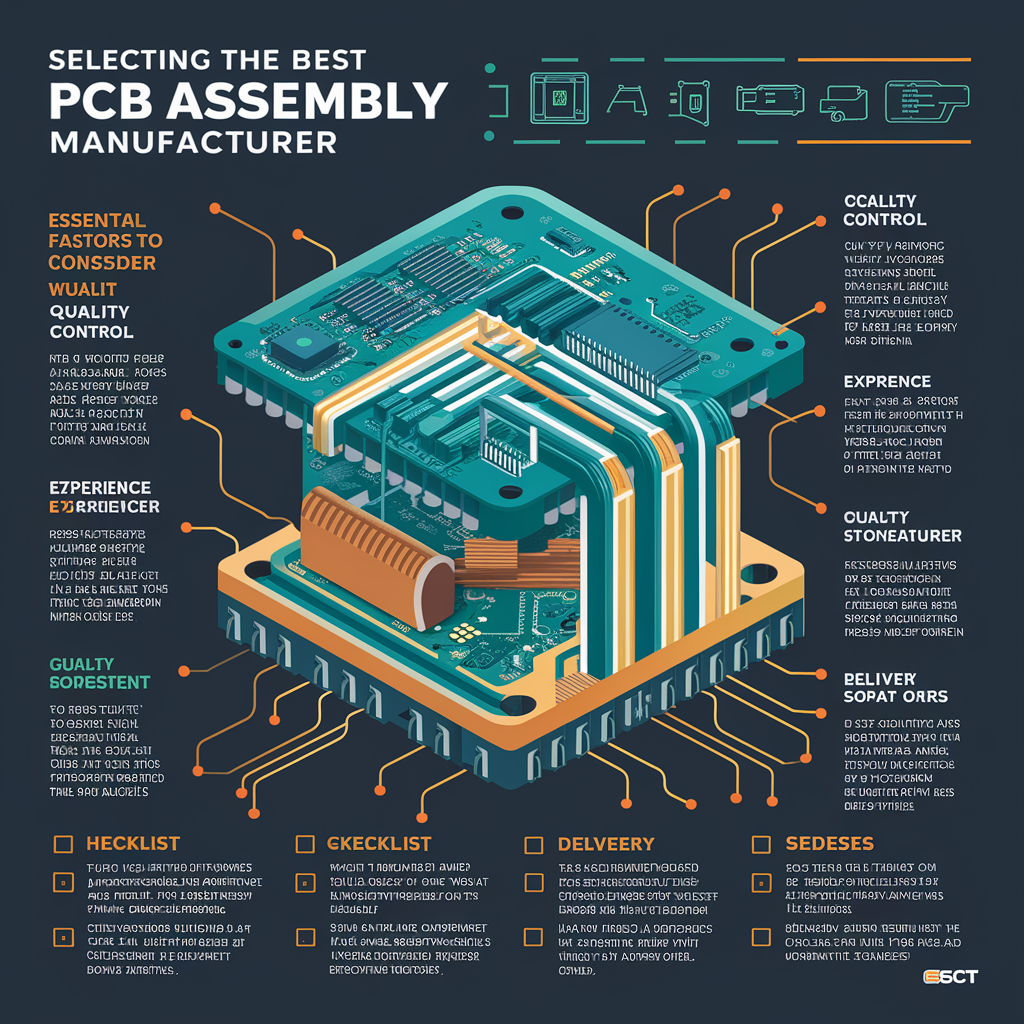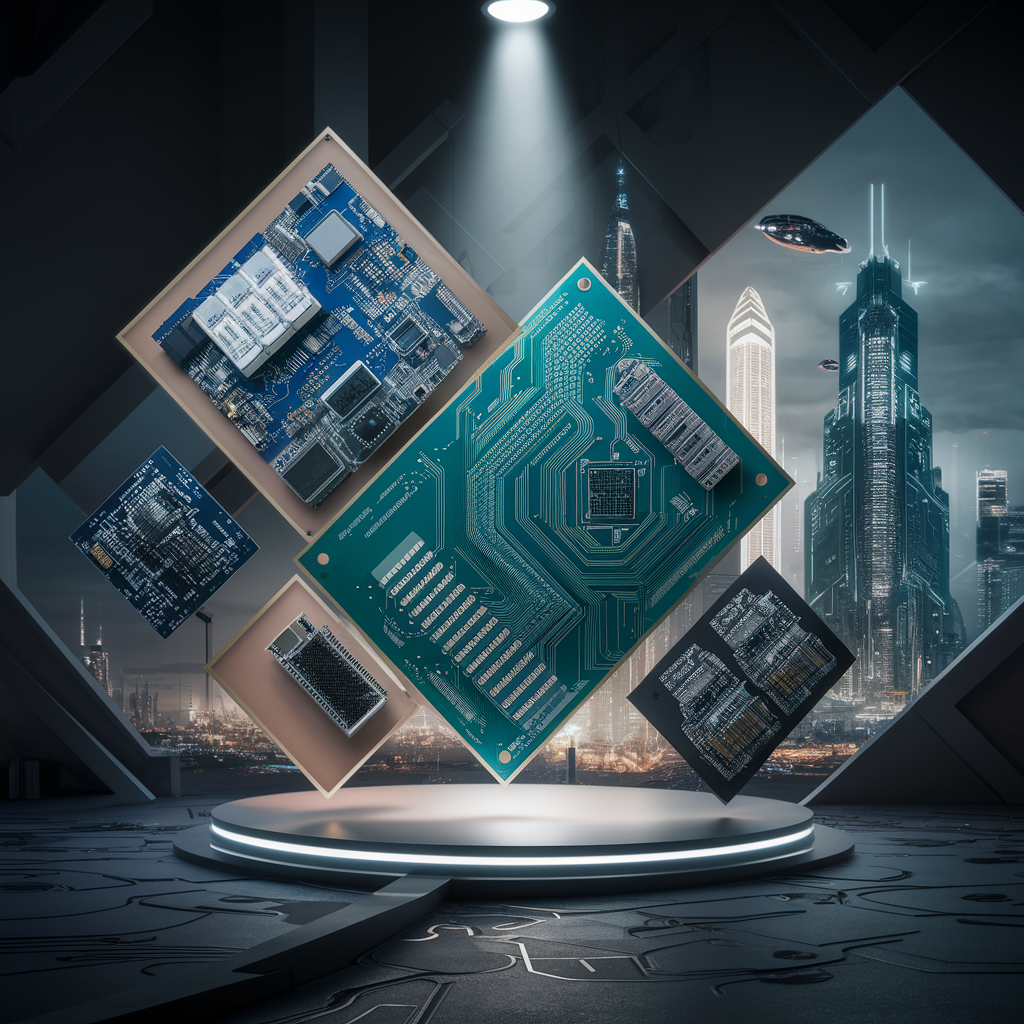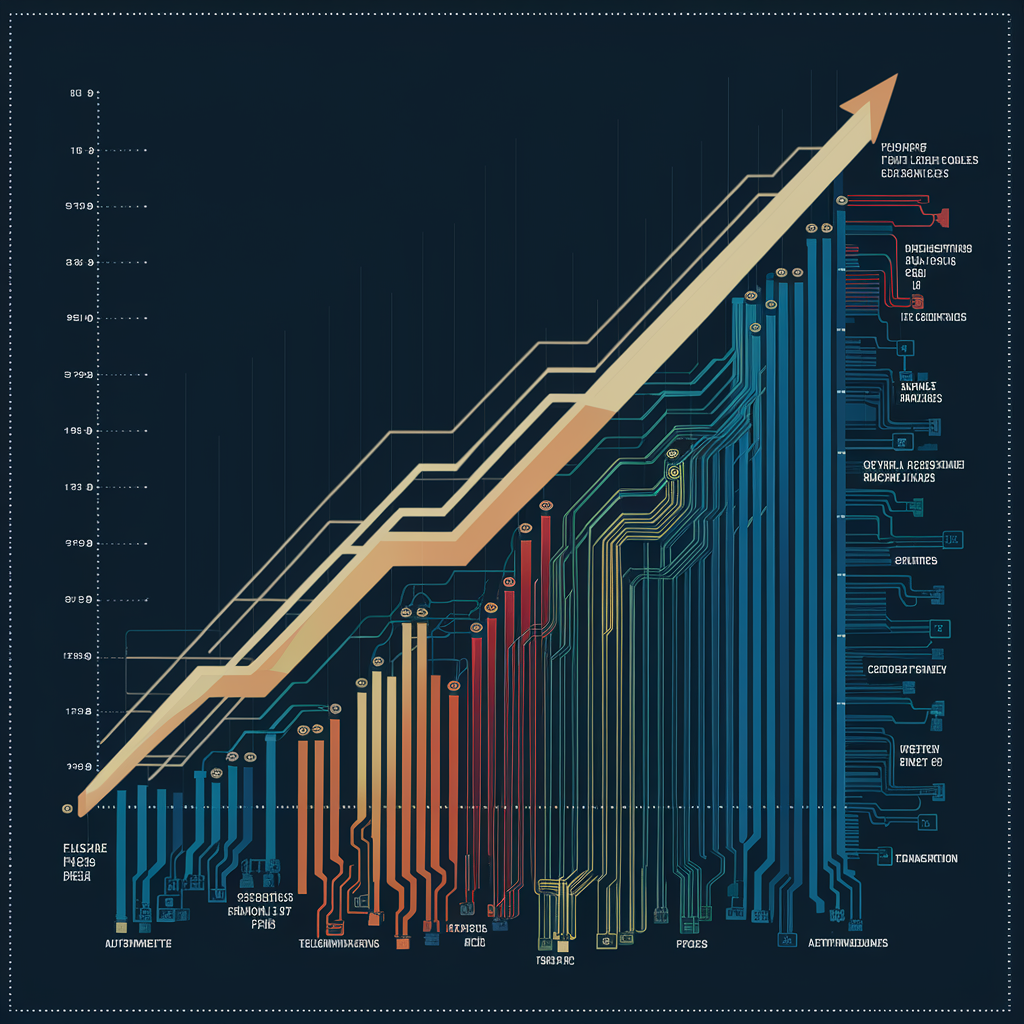Printed Circuit Board (PCB) assembly is a crucial part of electronics manufacturing. This article dives into the world of PCB assembly giants. We’ll look at what makes them stand out and why they’re considered the best in the business. Whether you’re in the industry or just curious, this guide will help you understand the key players in PCB assembly.
PCB Manufacturing Specifications and Capabilities
| Categroy | details |
| Featured Product Type | Custom PCB 1-40 layers FR4, Aluminum, multi-layer FPC, Rigid flex, Teflon, HDI, Thick copper, IC package substrate, microwave high frequency board, Impedance-controlled PCB production fabrication |
| Featured Soldermask Color | Transparent, Purple, Grey, Orange, Pink |
| Mainly Equipment | LDI, Laser Drilling Machine, Blind hole filling copper line, Automatic electroplating line, Vacuum Etching Line, Automatic Detection Machine |
| Certification | CE, IPMS, IATF, ISO9001, UL, ROHS, UL, ISO13485, ISO14001 |
Standards for Selecting PCB Assembly Manufacturers

When selecting a PCB assembly company, it’s crucial to consider several factors to ensure you choose the best partner for your needs. Let’s break these factors down in detail:
1. Quality of Products
Top PCB assembly manufacturers are distinguished by the superior quality of their products. This high standard is achieved through:
Premium Materials
The use of high-quality raw materials ensures the durability and reliability of the PCBs. Components such as laminates, copper, and solder mask materials are selected based on their performance and longevity.
Strict Quality Control Measures
Leading manufacturers implement rigorous quality control protocols at every stage of production. This includes inspections during material procurement, production, and final testing stages. These measures help identify and eliminate defects early in the process.
Advanced Testing Methods
Utilizing cutting-edge testing techniques such as Automated Optical Inspection (AOI), X-ray inspection, and In-Circuit Testing (ICT) ensures that each PCB meets or exceeds industry standards. These tests verify the integrity of the circuit, the placement of components, and the overall functionality of the board.
Ensuring high-quality PCBs reduces the likelihood of failures, leading to cost savings and increased reliability of the final products.
2. Manufacturing Capabilities
The manufacturing capabilities of a PCB assembly company are a critical factor in determining their suitability. Key aspects include:
State-of-the-Art Equipment
Advanced machinery and technology enable manufacturers to produce PCBs with precision and efficiency. This includes automated pick-and-place machines, reflow soldering ovens, and CNC drilling machines.
Skilled Workers
Experienced and well-trained staff are essential for handling complex PCB assembly processes. Their expertise ensures that the production runs smoothly and any potential issues are promptly addressed.
Flexible Production Lines
The ability to adapt production lines to accommodate various PCB types and quantities is crucial. This flexibility allows manufacturers to handle both low-volume prototype orders and high-volume production runs efficiently.
These capabilities enable PCB assembly companies to meet diverse client requirements and adapt to changing industry demands.

3. Customer Service
Exceptional customer service is a hallmark of great PCB assembly manufacturers. This includes:
Quick Response Times
Prompt replies to inquiries and swift resolution of issues are vital in maintaining client satisfaction. A responsive company helps prevent delays and keeps projects on schedule.
Clear Communication
Transparent and open communication ensures that clients are well-informed about the progress of their orders. This includes regular updates, detailed reports, and clear explanations of any technical matters.
Problem-Solving Skills
The ability to address and resolve problems efficiently is crucial. This includes troubleshooting production issues, offering technical support, and providing solutions that meet the client’s needs.
Good customer service fosters strong, long-term relationships with clients, leading to repeat business and positive referrals.
4. Reputation in the Industry
A solid reputation within the PCB assembly industry is built over time and reflects a company’s commitment to excellence. Key indicators of a strong reputation include:
Reliability
Consistently delivering on promises and meeting deadlines is essential. Reliable manufacturers gain the trust of their clients by providing dependable service.
Consistent Quality
Maintaining high-quality standards across all products ensures client satisfaction and builds a positive reputation. Consistency in quality reduces the risk of defects and returns.
Meeting Deadlines
Adhering to agreed-upon timelines is critical for maintaining client trust. Companies that consistently meet or exceed deadlines demonstrate their commitment to reliability and professionalism.
A reputable PCB assembly manufacturer has earned the respect and trust of its clients through years of dedicated service and high-quality work.
Our Feature Products

We offer a wide range of feature products to meet various needs in the electronics industry. Our services include comprehensive PCB production and PCB assembly, ensuring high-quality and reliable circuit boards. We specialize in FPC & Rigid-Flex PCBA, which provides flexibility and durability for complex electronic devices.
Our RO4003 PCBA is designed for high-frequency applications, while our HDI PCB Assembly caters to high-density interconnect requirements. We also provide heavy copper PCBs for high-power applications. Additionally, we offer custom keyboard solutions and components sourcing to meet specific client needs.
Top PCB Assembly Companies
Now, let’s look at some of the biggest names in PCB assembly. We’ll use a table to compare their strengths:
| Company Name | Known For | Key Strength |
| Unimicron Technology Corporation | High-tech PCBs | Advanced manufacturing |
| Zhen Ding Tech. Group | Wide product range | Large production capacity |
| Jabil Inc. | Innovative designs | Global presence |
| Sanmina Corporation | Complex solutions | End-to-end services |
| Benchmark Electronics | Precision engineering | Industry diversity |
| TTM Technologies, Inc. | Quick turnaround | Diverse portfolio |
| Flex Ltd. | Flexible manufacturing | Market adaptability |
| Celestica Inc. | High-reliability PCBs | Strong quality focus |
| Plexus Corp. | Custom solutions | Excellent customer service |
| Kimball Electronics | Automotive PCBs | Industry expertise |
| Shenzhen Kaifa Technology Co., Ltd. | Cost-effective solutions | Quality-price balance |
Let’s Dive Deeper into Each Company

1. Unimicron Technology Corporation
Unimicron Technology Corporation is renowned for its specialization in high-tech PCBs. The company employs cutting-edge manufacturing techniques to produce sophisticated circuit boards that meet the stringent requirements of industries such as aerospace and telecommunications. Their innovative approach ensures high performance and reliability in demanding applications.
2. Zhen Ding Tech. Group
Zhen Ding Tech. Group offers a wide range of PCB products, demonstrating versatility and expertise across various applications. With a substantial production capacity, the company can efficiently handle high-volume orders, making it a preferred choice for clients needing large-scale production without compromising on quality or efficiency.
3. Jabil Inc.
Jabil Inc. is recognized for its innovative PCB designs, pushing the boundaries of what is possible in electronics manufacturing. With a strong global presence, Jabil serves a multitude of industries worldwide, providing advanced solutions that cater to the unique needs of diverse markets.
4. Sanmina Corporation
Sanmina Corporation excels in delivering complex PCB solutions, offering end-to-end manufacturing services. This includes design, production, and testing, all under one roof, ensuring seamless integration and quality control throughout the manufacturing process. Their comprehensive services make them a one-stop shop for sophisticated PCB requirements.
5. Benchmark Electronics
Benchmark Electronics is known for its focus on precision engineering. Serving multiple industries, the company is renowned for producing high-quality, reliable PCBs. Their commitment to precision and reliability makes them a trusted partner for clients needing exacting standards in their electronic components.
6. TTM Technologies, Inc.
TTM Technologies, Inc. stands out for its quick turnaround times, ensuring that clients can move rapidly from concept to production. With a diverse product portfolio, TTM can handle both prototype and volume production, offering flexibility and scalability to meet various project demands.
7. Flex Ltd.
Flex Ltd. is known for its flexible manufacturing capabilities, allowing the company to adapt quickly to market changes. They offer innovative supply chain solutions that enhance efficiency and responsiveness, making them a strategic partner in dynamic and fast-paced industries.
8. Celestica Inc.
Celestica Inc. specializes in high-reliability PCBs, focusing on delivering products that meet stringent quality standards. Serving industries with strict requirements, such as medical and aerospace, Celestica ensures that every PCB is manufactured to the highest levels of precision and dependability.
9. Plexus Corp.
Plexus Corp. offers custom PCB solutions tailored to the specific needs of their clients. Known for excellent customer service, Plexus works closely with clients throughout the development process, ensuring that the final product meets or exceeds expectations. Their collaborative approach fosters strong client relationships and successful project outcomes.
10. Kimball Electronics
Kimball Electronics brings expertise in automotive PCBs, leveraging industry-specific knowledge to meet the high standards of the automotive sector. Their deep understanding of automotive requirements ensures that their PCBs are robust, reliable, and capable of withstanding the harsh conditions often encountered in automotive applications.
11. Shenzhen Kaifa Technology Co., Ltd.
Shenzhen Kaifa Technology Co., Ltd. provides cost-effective PCB solutions, balancing quality and price to deliver value to budget-conscious clients. Their ability to offer competitive pricing without sacrificing quality makes them a popular choice for clients looking to optimize costs while maintaining high standards.
Each of these companies brings unique strengths and capabilities to the PCB manufacturing industry, offering a range of solutions to meet diverse client needs.
Choosing the Right PCB Assembly Company

Selecting the right PCB assembly partner is critical to ensuring the success of your projects. Here are key factors to consider:
1. Your Specific Needs
Understanding your specific needs is the first step in choosing a PCB assembly company. Consider the following:
Volume
Determine whether you need a manufacturer that can handle low-volume prototype runs or high-volume production. Some companies specialize in small batch productions, while others are better suited for large-scale manufacturing.
Complexity
Assess the complexity of your PCB designs. If your projects involve intricate layouts, multi-layer boards, or require specialized assembly techniques, choose a manufacturer with the necessary expertise and capabilities.
2. The Company’s Expertise in Your Industry
Experience in your specific industry can be a significant advantage. A company familiar with the standards, regulations, and common challenges of your industry is more likely to deliver high-quality results. Look for manufacturers with a proven track record in sectors such as:
- Automotive
- Medical Devices
- Consumer Electronics
- Telecommunications
- Aerospace
Industry-specific knowledge ensures that the manufacturer can meet your unique requirements and deliver products that comply with relevant standards.
3. Track Record of Quality and Reliability
A company’s history of quality and reliability is a strong indicator of their capability. Evaluate their track record by:
- Reviewing Case Studies and Testimonials Look for examples of past projects and client feedback to gauge their performance and customer satisfaction.
- Checking Certifications: Certifications such as ISO 9001, IPC-A-610, and UL listings are indicators of a commitment to quality and industry standards.
- Assessing Their Quality Control Processes: Ensure the manufacturer has stringent quality control measures and advanced testing methods to maintain high standards.
4. Customer Service and Communication
Effective communication and excellent customer service are essential for a smooth collaboration. Consider the following:
- Responsiveness: How quickly does the company respond to inquiries and address issues?
- Transparency: Are they transparent about their processes, timelines, and any potential challenges?
- Support: Do they offer comprehensive support throughout the project lifecycle, from design and prototyping to production and after-sales service?
Strong customer service ensures that your concerns are addressed promptly, and you are kept informed throughout the project.
5. Pricing and Value for Money
While cost is an important factor, it shouldn’t be the only consideration. Evaluate the pricing structure and the overall value for money by:
- Comparing Quotes: Obtain detailed quotes from multiple manufacturers to compare costs and services offered.
- Assessing Included Services: Consider what is included in the price, such as testing, quality assurance, and any additional support services.
- Balancing Quality and Cost: The cheapest option may not always be the best. Look for a balance of quality, service, and price to ensure you get the best overall value.
Choosing a PCB assembly company that offers a fair price for high-quality services can save you time and money in the long run.
The Future of PCB Assembly
The PCB assembly industry is continuously evolving. Here are some key trends to watch:
1. Smaller, More Complex Designs
As technology advances, there is a growing demand for smaller, more complex PCB designs. This trend is driven by:
- Miniaturization: Devices are becoming smaller, requiring more compact and intricate PCB layouts.
- Higher Performance: Increased functionality and performance demands lead to more complex designs with higher component density.
Manufacturers are investing in advanced equipment and techniques to handle these sophisticated designs.
2. Increased Automation in Manufacturing
Automation is transforming PCB assembly processes, leading to:
- Higher Precision: Automated machines can place components with greater accuracy than manual assembly.
- Increased Efficiency: Automation reduces production time and increases throughput, making it possible to meet high-volume demands quickly.
- Lower Costs: Automated processes can lower labor costs and reduce the likelihood of human error, resulting in cost savings.
Companies that embrace automation are better positioned to deliver high-quality PCBs efficiently and cost-effectively.
3. More Focus on Eco-Friendly Materials
Environmental sustainability is becoming increasingly important in PCB manufacturing. Trends include:
- Eco-Friendly Materials: The use of lead-free solder, halogen-free laminates, and other environmentally friendly materials is on the rise.
- Waste Reduction: Manufacturers are implementing practices to minimize waste and improve recycling processes.
- Energy Efficiency: Efforts to reduce energy consumption in manufacturing processes are gaining traction.
Top companies are leading the way by adopting green practices and promoting sustainability in their operations.

4. Growing Demand for Flexible and Rigid-Flex PCBs
Flexible and rigid-flex PCBs are gaining popularity due to their versatility and performance advantages. Benefits include:
- Design Flexibility: These PCBs can be bent and folded, allowing for more innovative and compact designs.
- Durability: Flexible and rigid-flex PCBs are more resistant to vibrations and mechanical stress, making them ideal for demanding applications.
- Reduced Weight: They offer a lightweight solution for electronic devices, which is crucial for applications like aerospace and portable electronics.
Manufacturers are expanding their capabilities to meet the increasing demand for flexible and rigid-flex PCBs, investing in specialized equipment and training.
By staying abreast of these trends, leading PCB assembly companies are adapting to the changing landscape, ensuring they remain competitive and continue to meet the evolving needs of their clients.
Conclusion
These PCB assembly titans lead the industry for good reasons. They excel in product quality, manufacturing capabilities, customer service, and industry reputation. When choosing a PCB maker, consider these factors to find the best fit for your needs. Whether you need high-volume production or custom solutions, there’s a top-tier company ready to meet your PCB assembly needs.
Frequently Asked Questions
1. What is PCB assembly?
PCB assembly is the process of attaching electronic components to a printed circuit board.
2. Why is quality important in PCB manufacturing?
High-quality PCBs are less likely to fail, ensuring better performance and longevity of electronic devices.
3. How do I choose the right PCB assembly company?
Consider factors like quality, capabilities, customer service, and reputation. Match their strengths to your specific needs.
4. What industries use PCBs the most?
PCBs are used in many industries, including automotive, aerospace, consumer electronics, and medical devices.
5. How long does PCB assembly usually take?
Assembly time varies based on complexity and volume, ranging from a few days for prototypes to several weeks for large orders.

Nicholas Clark is the innovative mind behind Insuranted.com, a website dedicated to providing clear, comprehensive, and reliable information on insurance. With a passion for simplifying complex topics, Nicholas aims to empower readers to make informed decisions about their insurance needs










